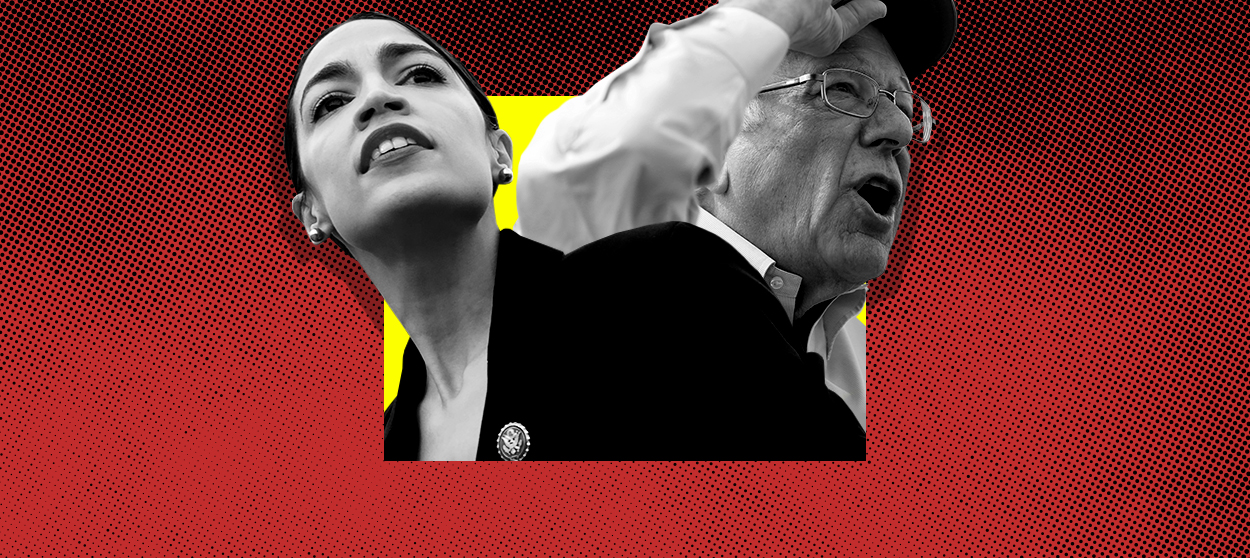Everyone is wrong about socialism
Both left and right have contributed to making the term utterly meaningless


A free daily email with the biggest news stories of the day – and the best features from TheWeek.com
You are now subscribed
Your newsletter sign-up was successful
If I start screaming "Wolverines!" at strangers it's not because I am getting impatient waiting for the start of the college football season (only 84 more days!) but because I have just seen the latest issue of National Review — the June 3 edition of the conservative magazine is given over to a symposium entitled "Against Socialism."
"Socialism," Rich Lowry tells us in his introduction to the special issue, "is back." My fondness for Red Dawn should, I hope, establish my own anti-communist bona fides. When the contras plant their flag on American soil I will be the first person heading for the hills with a rifle and a rosary. But this ain't it, chief.
Lowry himself seems to be under the impression that Franklin Roosevelt was a kind of socialist. (The great man in fact loathed socialists, and the feeling was mutual.) One National Review contributor argues that Plato was a commie, indeed, the very first; his definition of "socialist" is capacious enough to make room for Barack Obama as well. One of the magazine’s senior editors is of the opinion that "the common good," a phrase used approvingly by every political philosopher of any importance during the last two millennia with the exception of Ayn Rand, is "Leninist."
The Week
Escape your echo chamber. Get the facts behind the news, plus analysis from multiple perspectives.

Sign up for The Week's Free Newsletters
From our morning news briefing to a weekly Good News Newsletter, get the best of The Week delivered directly to your inbox.
From our morning news briefing to a weekly Good News Newsletter, get the best of The Week delivered directly to your inbox.
All of this leaves me very confused. It doesn't help, of course, that two of the avowedly socialist bogeymen singled out in the National Review symposium don't seem to have a very coherent idea of what "socialism" is either. Whatever Bernie Sanders and Alexandria Ocasio-Cortez stand for, it certainly isn't community ownership of the means of production, which is, the last time I clicked on the Wikipedia page, literally what socialism means.
Believing that there should be a social safety net and that this should include government provision of health care for those who cannot afford it is not "socialism." This not exactly radical worldview could be called a lot of other things though, including "Reaganism" or "Thatcherism." Putting aside his views on so-called social issues, which are all but obligatory in today's Democratic Party, Sanders is about as radical as the average New Deal Democrat of the '30s. The fact that he has himself pointed this out on numerous occasions does not make the picture any clearer. Even the Democratic Socialists of America admit that "regulated markets can guarantee efficiency, consumer choice and labor mobility."
This leads me to two conclusions. The first is that nobody in America today with any kind of meaningful public platform is actually a "socialist." (Though I did meet an actual communist once at a rally in Washington, D.C., years ago. His name was Carl, and he told me that Trump was better on economic issues than Hillary Clinton.) This is in large part because the word itself does not mean anything in roughly 99 percent of the occasions in which it is used. It is one of those bizarre nouns — I could be cheeky and argue that "capitalism" is another one — that suggests something vaguely good to one group of people and something indescribably wicked to another.
Which brings me to my second conclusion, namely, that all the people who are moaning about socialism in America today need one another desperately. Sanders and Ocasio-Cortez are considered radical, edgy politicians because they argue for things like an increased minimum wage, following in the footsteps of noted commie thugs Richard Nixon, Ronald Reagan, and George W. Bush. This shores up their reputations with their own bases, who never have to ask themselves why American socialism is well to the right of the Conservative Party under Harold Macmillan 60 years ago. It also gives right-wingers their jollies. In other words, everyone wins, a desirable and, dare I say, socialist outcome. Maybe the real socialism was the political enemies we caricatured along the way.
A free daily email with the biggest news stories of the day – and the best features from TheWeek.com
The decline of "socialism" into verbal obsolescence is regrettable. Over the course of the last two centuries the word has meant a great many things to different people, not all of them inherently wrong. I myself have advocated for champagne socialism in the literal sense of handing the production of bubbly over to an international collective that would be responsible for distributing it equally to all the world’s families. But any term of art that could refer with equal accuracy to William Morris or Xi Jinping is, I think, useless.
Let's find another word to hammer all the meaning out of, shall we?
Matthew Walther is a national correspondent at The Week. His work has also appeared in First Things, The Spectator of London, The Catholic Herald, National Review, and other publications. He is currently writing a biography of the Rev. Montague Summers. He is also a Robert Novak Journalism Fellow.
